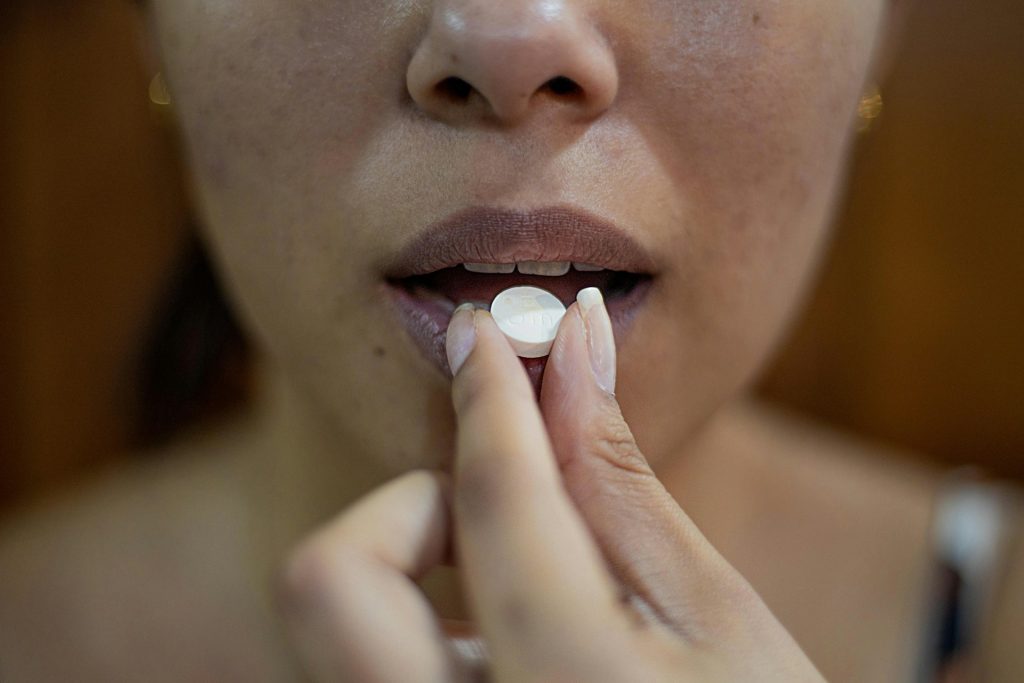Nearly half the young women in the United States take pills for depression. As long as a doctor prescribes them, these mind-altering chemicals are not thought of as narcotics. Neither the woman nor her physician nor her pharmacist are arrested for being involved in this sort of drug trafficking.
Many women take pills to control their weight. These drugs act much the way that uppers or speed do, raising the metabolic rate so that more of the undesired fat, much of which is good for them, is burned away. Sometimes, the complicated chemicals in those two types of drugs do not work well together. When combined with life-destroying birth control pills, bad effects may be multiplied.
On top of all those pills, many take “vitamin supplements”. They are largely useless, but popular, nonetheless.
Some pills raise blood pressure. Others lower blood pressure. Some pills stop diarrhea. Others cause bowels to move. Some work to contain urine, others, to expel it more frequently. Some are designed to put people to sleep, some, to wake them up.
Once in a while, people are told to stop taking all medications. Few, if any, get sicker or die without most them. But, that’s unusual. And, it’s hard for those whose profits are made from pills to tell people to stop taking all of them. The entire medical establishment profits from increased drug use. Endless advertisements in all sorts of media convince many of us that we will be healthier and live longer, happier lives by taking pills.
People who have health insurance know that they don’t have to pay the full cost of the prescribed chemicals. So, those who have health insurance take lots more pills than people without coverage. Pharmaceutical companies know that. So, they push “Universal” health insurance.
It’s cheaper to buy pills on line. Many people do that. They do not know who made the pills. Even proprietary shapes, colors, designs, logos, and containers are counterfeited. In one rare test of purity, millions of capsules were found to contain mostly plaster. No one seems to care. Placebos seem to do about as much good as real chemicals, but counterfeit drugs are mostly a concern to manufacturers who see their profit margins being eroded by them.
“Universal” health insurance will double the number of people who will be taking pills.
Pills for men.
Marketing campaigns have convinced tens of millions of men that they should be taking some sort of statin drug to “reduce levels of dangerous cholesterol”. This is one of the most profitable marketing campaigns in history. First, doctors were convinced that all kinds of cholesterol levels should be measured. Those who own testing labs are particularly fond of that part of the cholesterol “problem”. Then, with a precise laboratory analysis in their doctors’ hands, most patients were told “Your cholesterol is a serious problem.”
Most marketing professionals know that introducing what seems to be “necessary confusion in the name of better understanding” into a marketing plan makes it work better. So, cholesterol was divided into “good cholesterol” and “bad cholesterol”. That provided just the right amount of cognitive dissonance to help sell the plan.
“What should I do, Doctor?” asked hundreds of millions of people.
“Take these pills.” was the usual answer, followed by a serious conversation about how important it is to take a lifetime of medication for a problem that ever-more people now see as nothing more than an unusually clever marketing ploy.
Few, if any, of those who were prescribed cholesterol drugs were told that cholesterol is a naturally occurring chemical in their own body. Even fewer were informed that cholesterol is produced by their own liver. Hardly anyone knows that statin drugs reduce cholesterol by shutting down the natural functions of the liver.
Few are clever enough to ask “Who knows more about how much cholesterol my body needs, my own liver or a drug company?”
Nonetheless, millions of men are comforted by the hope that their pills are “helping” them. They will anxiously await the results of their latest blood test, actually worried that their “bad cholesterol” will be up and that their “good cholesterol” will be down.








